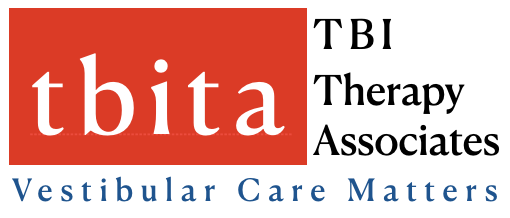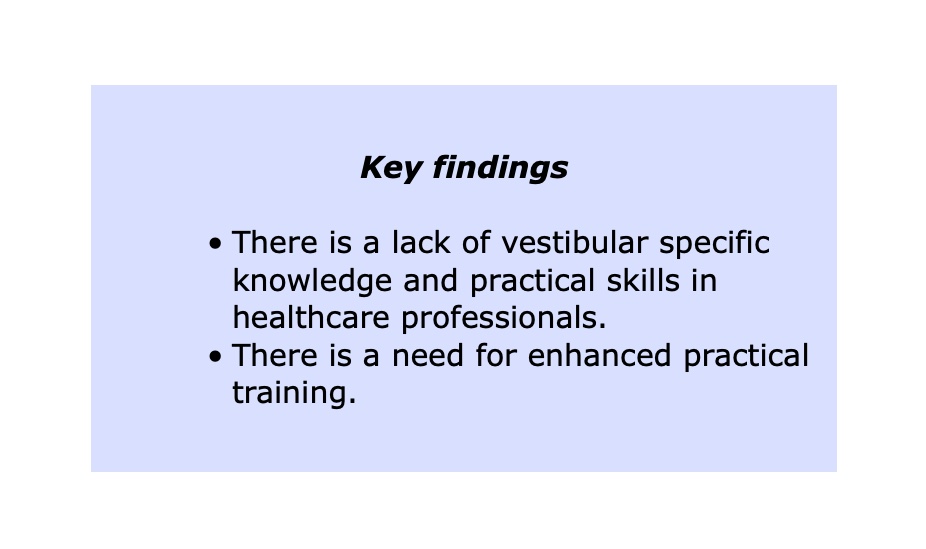Vestibular dysfunction is common in patients following acute traumatic brain injury (aTBI) with damaging consequences such as dizziness. Yet, in this study, doctors' perception of dizziness was that it was short lived, and generally gave it less importance than therapists. Notably, there was a perception among doctors that dizziness was a vague symptom without a specific treatment, or even that it was unfixable.
All respondents had some relevant knowledge around vestibular dysfunction, but a widespread lack of practical skills was noted.This implied that patients are not routinely assessed and treated for it. Doctors cited limited training, similar to physiotherapists and occupational therapists who viewed their training around vestibular dysfunction as insufficient. They felt that its management did not fall within the scope of their role. Specifically, occupational therapists in this study expressed a concern that treatment of vestibular dysfunction would cross professional boundaries.
Secondary barriers
for effective management of vestibular dysfunction following aTBI included time (especially in emergency settings), feasibility of diagnosis and treatment, motivation and
confidence. Trauma
therapists cited a lack of relevant role models as an issue, as well as
a difficulty with diagnosis and treatment due to the patients' state
such as their physical pain and cognition.
Despite the challenges mentioned by healthcare professionals in this study for the effective management of dizziness following aTBI, therapists acknowledged the serious implications of dizziness and prioritised the problem. Therapists showed the most desire to change in order to successfully treat vestibular dysfunction. Doctors also noted that therapists would be best placed for this responsibility. Suggested wider facilitators to improvement included changes to guidelines and better availability of information for practitioners and patients. Several role related facilitators were mentioned, including enhanced theoretical and practical training.
Key findings
- Lack of vestibular specific knowledge and practical skills in healthcare professionals.
- Need for enhanced practical training for the clinicians.

